President Choi’s Blog
Join us for Mizzou Day at the Missouri State Fair!
Aug. 10, 2023
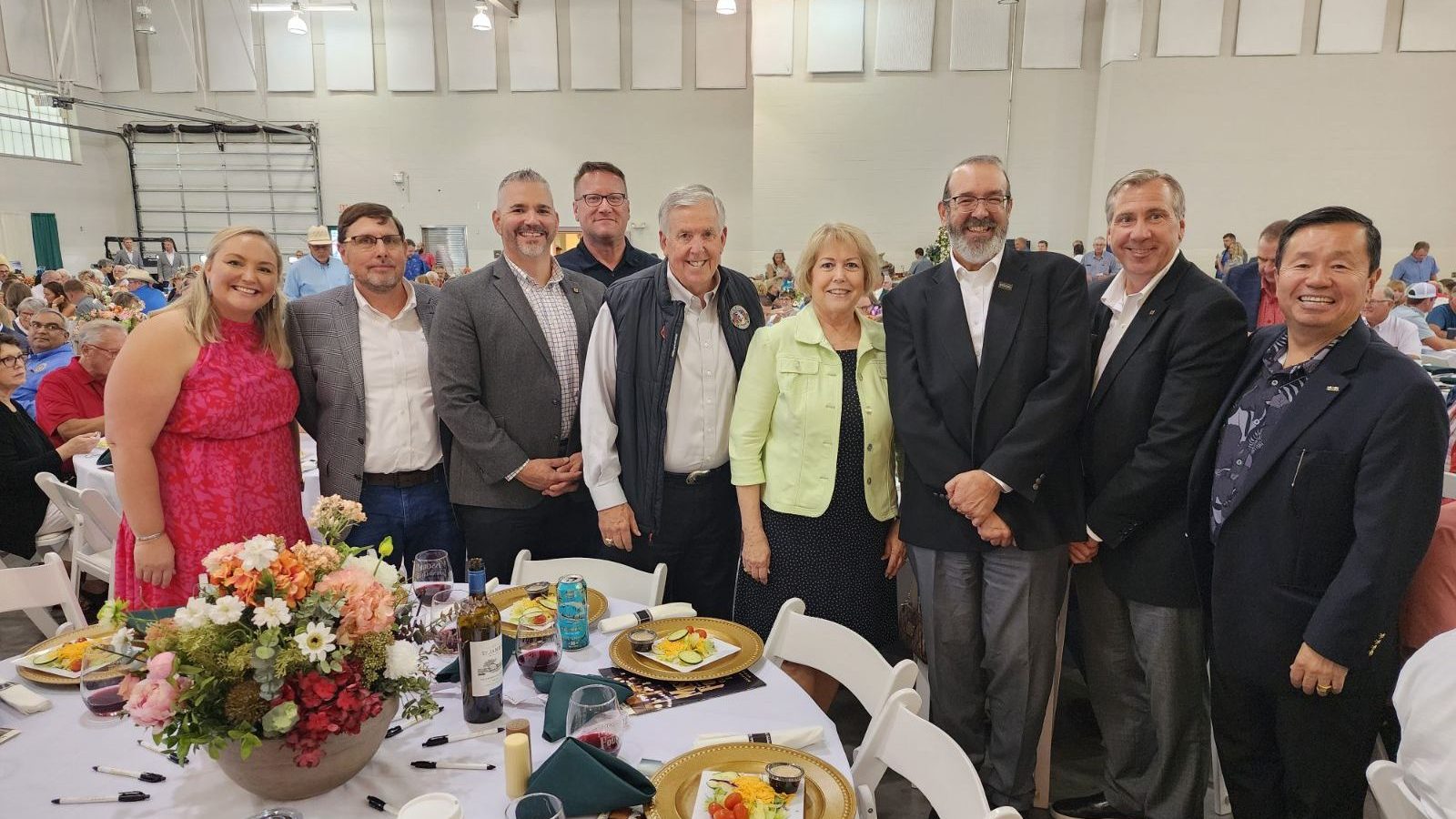
The Missouri State Fair officially begins this morning in Sedalia, and we’re thrilled to kick things off with the very first Mizzou Day! Join us for a full schedule of Tiger-themed events celebrating our impact across the state.
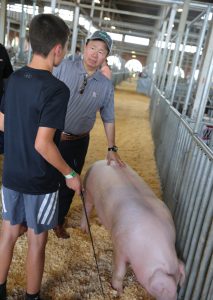
The fun continues the rest of the week at Mizzou Central, a one-stop destination for all things MU. Grab a scoop of Tiger Stripe ice cream and attend one of many demonstrations led by faculty and staff. We’ll also host free screenings from MU Health Care and booths with representatives from CAFNR, MU Extension, Mizzou Athletics and departments across campus – along with free giveaways and exclusive merch only available at Mizzou Central.
For 16 years the University of Missouri has been a proud partner of the State Fair, and this year we have a larger presence than ever before as a Grand Champion sponsor. Stop by Mizzou Central and learn how we’re fulfilling our land-grant mission to improve lives in Missouri.
— Mun
Note: Check out photos from Mizzou Day on Show Me Mizzou.
Mizzou Made connections
Aug. 7, 2023
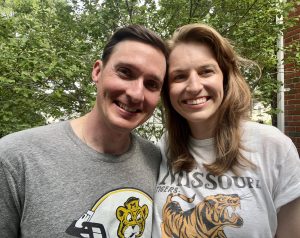
During a recent trip to New York City, I struck up a conversation with Emily Van Zandt, a University of Missouri School of Journalism alumna who noticed my Mizzou shirt.
Emily graduated in 2009 and is now a senior program manager of event content at Amazon Web Services, a job that takes her around the globe. She’s had a distinguished career as a reporter for the Kansas City Star, the Chicago Tribune, the Arkansas Democrat-Gazette and as an editor at the Washington Business Journal. It was great to hear her story and how the School of Journalism prepared her for success.
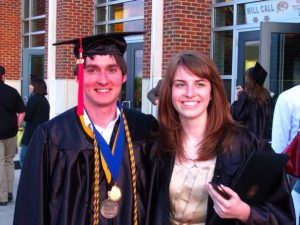
Emily also shared that her husband, Chad Day, is a fellow ‘09 J-School graduate and the chief elections analyst for The Associated Press (AP). In that role, he’s one of three people who review and approve the AP’s final call on election results. Like Emily, Chad has had an impressive career in journalism – first at the Kansas City Star and then at the Arkansas Democrat-Gazette. Before the AP, Chad was the lead data reporter for The Wall Street Journal and was on the team that won the 2023 Pulitzer Prize in Investigative Reporting. Also on the team were two other School of Journalism grads, Coulter Jones and James Grimaldi.
The MU connections don’t stop there. Emily’s father, Mark Van Zandt, is a longtime member of the Office of the General Counsel at the University of Missouri System.
I enjoyed meeting Emily, and I’m proud to see our alumni are achieving incredible things. No matter where you go, the Mizzou community is never far away.
— Mun
Animal Sciences team wins second consecutive national academic quadrathlon
July 25, 2023
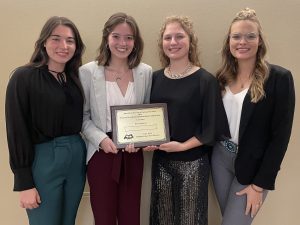
MU’s Animal Sciences Academic Quadrathlon team recently earned the top title at the American Society of Animal Science National Meeting in Albuquerque, N.M. It’s the second year in a row that a team of Mizzou students has won. Congratulations to Aliyah Luntsford, Catriona Chew, Caleigh Grote and Alexia Sweiger.
The academic quadrathlon is comprised of a laboratory practicum, scientific presentation, written exam and a quiz bowl. To qualify, the team first won a local event, followed by a regional competition in Madison, Wis. At the national meeting, they defeated teams from Texas A&M, Penn State and the University of Wyoming.
Caleigh is a senior animal sciences major, Aliyah and Catriona are studying veterinary medicine at Mizzou and Alexia graduated in the spring. Along the way, the team received incredible support from Hannah Twenter, an animal sciences instructor, as well as Animal Sciences Division Director Bryon Wiegand.
CAFNR programs, including animal sciences, are shaping the next generation of ag leaders. The academic quadrathlon team shows that our students are among the best in the country. Great job, Tigers!
— Mun
Mizzou researcher quoted in The New York Times
July 20, 2023
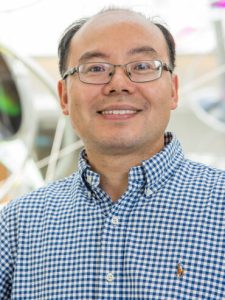
In case you missed it: Last week Dr. Xiu-Feng “Henry” Wan – MU professor, Bond Life Sciences Center researcher and director of the NextGen Center for Influenza and Emerging Infectious Diseases – was included in a New York Times story about a significant new finding.
Dr. Wan is part of a study that suggests SARS-CoV-2, the virus that causes COVID-19, spread from humans to white-tailed deer, and possibly back to humans. This important discovery could shape future public health responses to the disease. The first author of the study is Dr. Aijing Feng, an MU postdoctoral fellow, and co-authors include Cynthia Tang, an M.D.-Ph.D. student in Mizzou’s Institute for Data Science and Informatics, and researchers from the U.S. Department of Agriculture’s Animal and Plant Health Inspection Service and the Centers for Disease Control and Prevention.
Their paper was published in Nature Communications, a major research journal. In addition to The New York Times, it’s also been covered by CBS News and other outlets around the world.
I’m proud to see the outstanding work of our groundbreaking researchers.
— Mun
Members of MU chess community win national awards
July 18, 2023
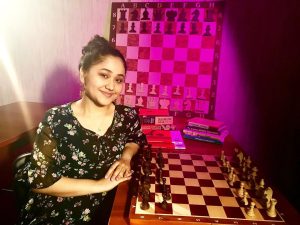
Mizzou Chess is again receiving national recognition for excellence.
MU student Begim Tokhirjonova was recently named the 2023 U.S. Chess Federation Woman Chessplayer of the Year. Originally from Uzbekistan, she is an International Woman Grandmaster and was part of the inaugural Mizzou Chess Team in 2019 – putting our Tigers on an upward trajectory. Begim is completing a degree in business administration with an emphasis in management, a minor in entrepreneurship and innovation, and a global business certificate.
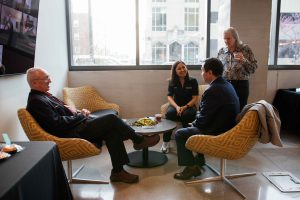
The U.S. Chess Federation also announced that Curator Jeanne Cairns Sinquefield and Rex Sinquefield received the Gold Koltanowski Award for growing the country’s chess community. Both are dedicated supporters of MU Chess – as well as our music programs through the visionary Mizzou New Music Initiative and the Sinquefield Music Center.
Congratulations to all!
— Mun
MU alumna becomes chief justice of the Missouri Supreme Court
July 13, 2023
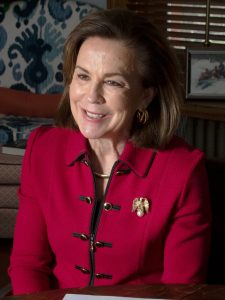
For the second time in a decade, Mizzou Law alumna Mary Russell is leading the Missouri Supreme Court.
This month she begins her two-year term as chief justice, a role she previously held from July 2013 to June 2015.
In 2004, Chief Justice Russell became the third woman appointed to the court. She is its longest-serving current member and a dedicated mentor to those interested in the legal field.
MU is well represented at the state’s highest court. Five of the seven judges are alumni, including previous chief justice, Judge Paul C. Wilson.
Like Chief Justice Russell, a majority of Mizzou Law graduates stay in Missouri to launch their careers and make a difference. Their leadership shapes the future of our state.
— Mun
World War II veteran, accomplished Tiger celebrates 100 years
July 11, 2023
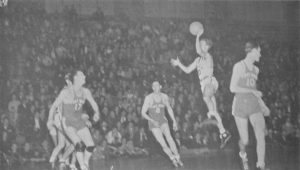
A distinguished World War II veteran and Mizzou alumnus is about to celebrate a major milestone: his 100th birthday.
In 1940, Edward Matheny Jr. came to Columbia from Kansas City and quickly became a prominent member of the campus community. Among many accomplishments, he was elected to the prestigious Phi Beta Kappa honor society, selected to join the QEBH secret honor society, played on the basketball team, was editor of the Savitar and was active in fraternity life. Working on an accelerated course of study, he graduated in December 1943 with a degree in history and soon after joined the war effort.
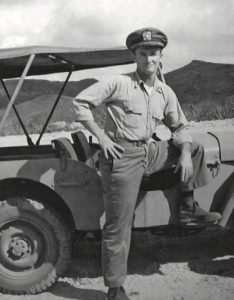
He was an officer in the Navy and assigned to the staff of Adm. Chester Nimitz, commander in chief of the Pacific Fleet. From headquarters at Pearl Harbor, he helped track the movement of thousands of vessels throughout the Pacific Ocean. He then transferred to the 5th Fleet under Adm. Raymond A. Spruance, where he served through the war’s end and beyond.
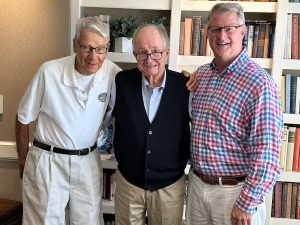
In 1949, Mr. Matheny graduated cum laude from Harvard Law School and returned to Kansas City to join the firm now known as Husch Blackwell – eventually becoming a managing partner. He is a respected civic leader who established Kansas City’s first public television station, led the non-partisan Citizens’ Association to support good governance and served for 15 years as president and foundation chairman of Saint Luke’s Hospital. He is also a notable historian who has written a number of books about the city and its institutions. At MU, he’s a member of the Jefferson Club and a life member of the Mizzou Alumni Association.
Mr. Matheny provides a great example of our commitment to service and is an outstanding representative of the Tiger community. On behalf of all Mizzou, I want to wish Mr. Matheny a happy birthday and thank him for the many ways he’s given back to our campus and country.
— Mun
Leadership in the SEC
June 27, 2023
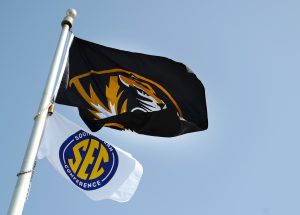
I am honored to join the SEC Executive Committee and serve as vice president in 2025. The Executive Committee includes university leaders from across the conference, and I look forward to working with other members to achieve excellence for our student-athletes.
The SEC’s slogan “It Just Means More” celebrates achievement in competition and in the classroom. The SEC is the premier athletic conference in the country. It also brings together some of the nation’s top institutions that share Mizzou’s commitment to teaching, research and service. As a rising force in the SEC, we are competing for championships and collaborating with conference peers to make a positive impact on our world.
I am proud of our many accomplishments in the SEC, and I’m eager to support the conference’s future.
— Mun
Quality care at the Veterinary Health Clinic
June 20, 2023

Last Tuesday, I toured the Veterinary Health Clinic (VHC) to get a firsthand look at the incredible work our faculty, staff and students do to treat animals that we love.
During my visit, I watched students gain hands-on experience assisting with an orthopedic surgery alongside faculty clinicians and technicians.
I also stopped by our Small Animal Emergency and Critical Care facilities and the Motion Analysis Laboratory, which uses equipment similar to what filmmakers use for special effects to address a range of mobility issues.
The VHC is one of only five veterinary hospitals in the country with a standing CT scanner that can image large animals like horses and cows without the need for general anesthesia. The clinic also houses one of the state’s premiere performance and rehabilitation centers for companion and working animals. These advanced resources, along with many others, provide animals with the quality medical services they need and our students with invaluable learning opportunities.
When our animals need care, they are in good hands at the VHC.
— Mun
Building community at Cambio de Colores
June 13, 2023
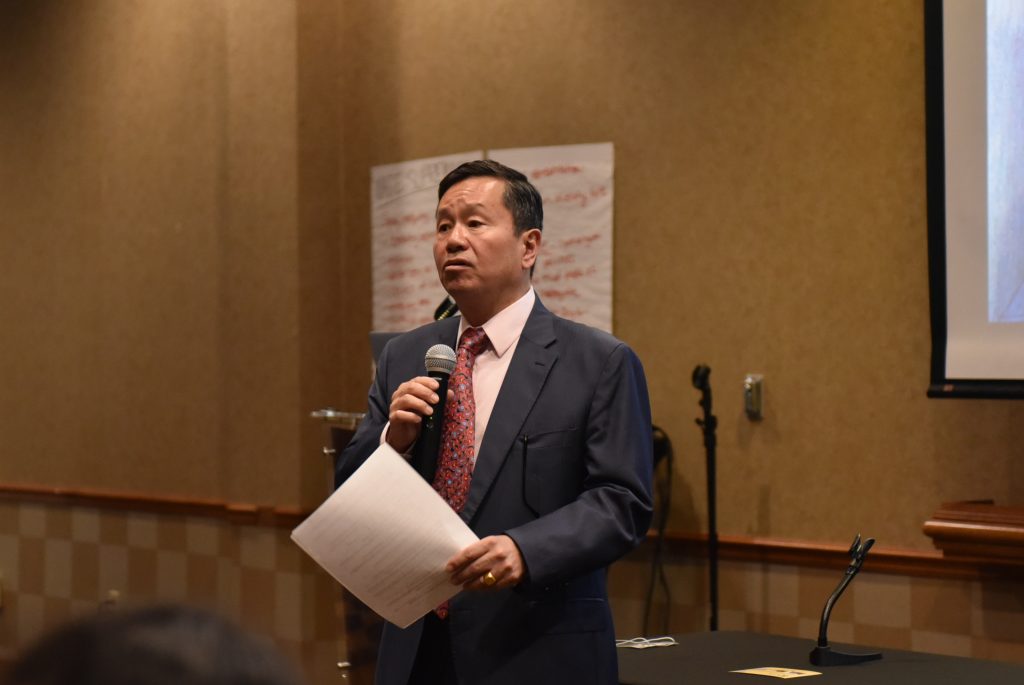
Last week, I had the privilege to speak at the 21st annual Cambio de Colores (Change of Colors) Conference. Hosted by MU’s Cambio Center, this conference is an opportunity for those working with Latine and immigrant communities to share research and promising practices that can improve lives.
As a land-grant university, we have a duty to serve every Missourian. Our state has a growing immigrant population and many who speak languages other than English – including nearly 150,000 who speak Spanish as their primary language. That makes the Cambio Center’s work – and our own – vitally important.
Through leading research and outreach efforts, the Cambio Center serves Latin American, Spanish-speaking, immigrant and refugee communities on campus and across the country. As part of our Division of Inclusion, Diversity & Equity, the center works with partners such as MU Extension and local organizations to bridge cultural divides, engage youth from many backgrounds and share information that benefits communities statewide. Cambio de Colores is a great opportunity to extend their impact and support a welcoming environment for all.
I want to thank Cambio Center Director Dr. Lisa Dorner, as well as the center’s staff, fellows and volunteers for organizing such an incredible event. I hope to attend again in the future.
— Mun